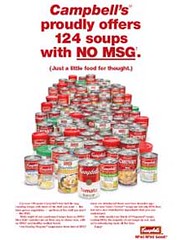
About six months ago, BlogCatalog members, together with Amnesty International USA and Copywrite, Ink., asked bloggers from around the world to Blog for Human Rights. On May 15, they did.
Although BlogCatalog has been the epicenter for several such events, no one expected what happened next. By 6 a.m., CNN had tracked 1.2 million blog posts ranging from heartfelt posts about Darfur to Myanmar. And then?
If you read some critics, it lost momentum.
I suppose you could make the case if you read a recent report from a United Nations official that 40,000 more civilians have been displaced in Darfur. Or perhaps, you might conclude it indirectly touched a team of Brazilian footballers who are now playing in charity matches to raise funds for the cyclone victims in Myanmar, which left 138,000 people dead or missing.
Or maybe it's simpler than all that. Maybe people who never thought about Amnesty International USA before thought about it on May 15. Or maybe the additional coverage from CNN gave people who never think about human rights their first thought about human rights.
Or maybe, for some, these thoughts turned into actions with some joining Amnesty International, some raising money for places like Darfur and Myanmar, and some simply being impacted by stories from around the Web.
If you read some participants, it was just a beginning.
First Place — Montessori Students and the Amman Imman Project
Second Place — I My Me by Id it is
Third Place — Identity Check by Anok
Seven more blogs that made an impact: Nardeeisms; Lord I Want To Be Whole; DrowseyMonkey; One Cool Site: WordPress Bogging Tips; Clio and Me; Pedestrian Observer GB; Blog De Lengua Espanola.
Or maybe one good day deserves another.
Shortly after Bloggers Unite exposed human rights to millions of people and inspired thousands into action, Refugees United contacted BlogCatalog and set a date for a related cause with a very specific mission. Refugees United provides refugees with an anonymous forum to reconnect with missing family members anywhere in the world. As a new service on the Internet, no one knows anything about this organization. You can learn more here.
Bloggers Unite For Refugees on Nov. 10
On Nov. 10, thousands of bloggers will join together again. This time to make a tangible difference by writing about the plight of people like the 40,000 new refugees in Darfur, the thousands still struggling in Myanmar, or several million you can find almost anywhere in the world. Some might even write about the thousands of people who remain displaced in Houston, Texas.
The choice is yours. The impact is permanent. The outcome is measurable, just not in the way we might expect.






















